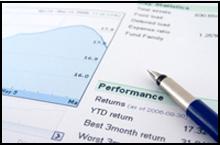 Want to know a place where “overweight” is a good thing?
Want to know a place where “overweight” is a good thing?
Keep reading.
If you have done any research of the kind we’ve been talking about for months now, you have come upon a rating or ranking of stocks, using terminology such as “buy,” “sell,” “hold” and other definitions that go with different researchers or brokerage firms. What do they mean and how can you use them to help you in your stock purchases? Let’s take them one by one and define them as best we can.
BUY = I think on any and every Web site or with any analyst I’ve ever checked out, “Buy” actually means … buy. Sometimes they are rated as “strong buy” or “moderate buy,” meaning, to me, don’t go hog wild and buy all of your shares at once. As the ubiquitous Jim Cramer of CNBC advises — and I think it’s good advice — take nibbles at a stock you want to buy. Don’t buy all 200 shares at once if you want to end up with 200 shares, for example. Try to buy it on bounces downward rather than at its highest price. But a buy is a buy is a buy.
HOLD = I have always been taught that in stock brokerage parlance, “Hold” means sell in real life but the analysts are afraid to give it a sell call. Why? Let’s set up a scenario to explain this: you’re a health care analyst for a major brokerage firm. As such, part of your job means to go to the various health care companies and meet with their people, assess their financials, etc. If after you have made all your phone calls and your personal visits, checked their financials and you issue a sell order on their stock, the next time you want to do your investigating, they might not be as willing to be so forthright and transparent with you as they were before. After all, they showed you the books and discussed the business with you, and you went and told your clients to sell the stock. So a “hold” is a euphemism in many circles for “sell” but don’t say I told you to do so. I’m not sure if this is as true today as in the past, but it’s what I grew up on as far as urban legend in the stock ratings arena.
Or a HOLD can also mean: “this stock has reached its target price, so don’t buy more, but hold on to what you own in case it has a bit more upward momentum.”
SELL = again, if a brokerage house or an analyst is telling you to sell, SELL, assuming it’s a site or a person you know and respect. Don’t just do what the analysts or the brokerage firms tell you to do. Find out the basis for their assessment, discover why they’re saying to sell, and then do your own research to see how accurate they are or if their predictions of a downturn are realistic. But a sell ranking on a stock is always a sign to be wary and watchful of the company.
OVERWEIGHT = this rating is cropping up more and more. As far as I know, it means this stock can be out of proportion to your portfolio; it’s that good! So this is one of the few times when being overweight is a good indication! It means the expectation of the stock is that it’s going to make you some money, so you might as well have an outbalanced number of shares in the company. This is the opposite of the view that your portfolio makeup should always be balanced among the stocks you own.
UNDERWEIGHT = just the opposite, obviously, of being overweight. This means you can own the stock, but make sure you do not have a large portion of your portfolio in that equity. It’s not quite a sell yet, but watch it carefully.
Remember, too, each brokerage firm will have it’s own terminology for their assessment of stocks. You need to discover the terminology for the brokerage firm you are with, or discover the terminology of the brokerage firms doing well and use their judgment as part of your stock profile. For example, I trust Goldman Sachs and think they have a good group of analysts working for them, so I watch carefully when they come out with an assessment of a particular stock. I’m willing to let them do the research for me because I think it’s valid research and therefore will be a good assessment of a stock I’m looking at.
I hope this helps you navigate the world of stock rankings and ratings to be a more savvy investor!
